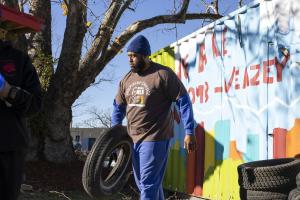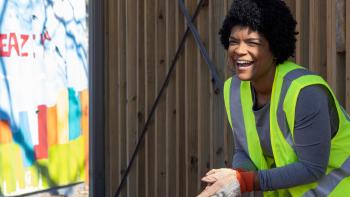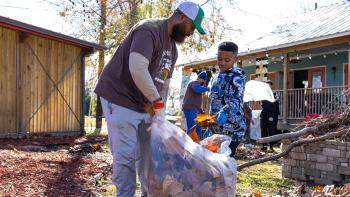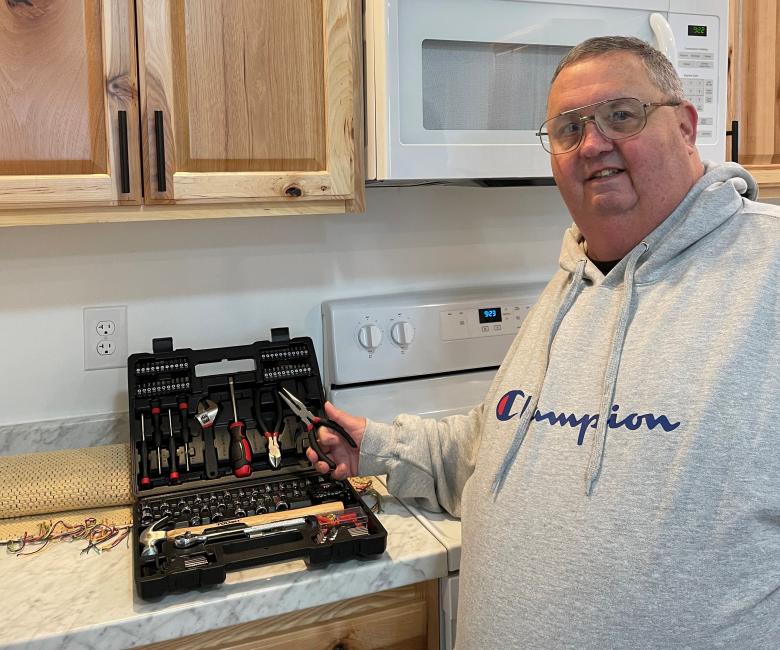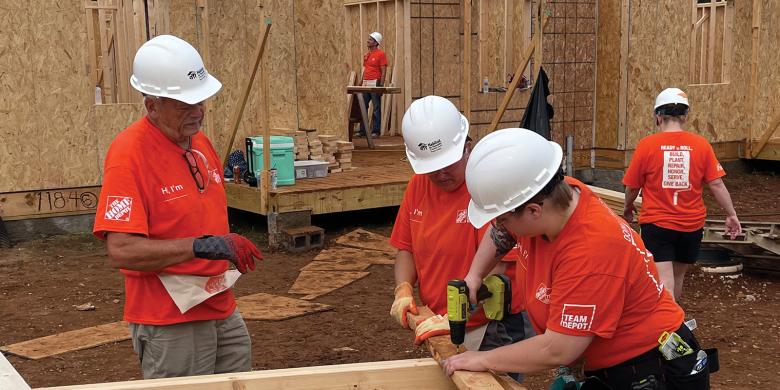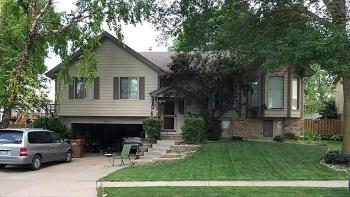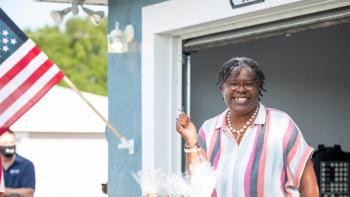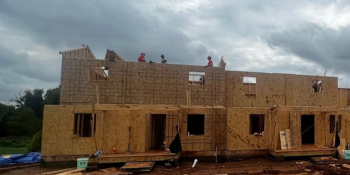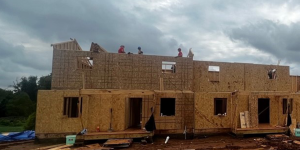Habitat partners with residents to revitalize an under-resourced Louisiana neighborhood
With support from Lafayette Habitat, residents in McComb-Veazey, a predominantly Black neighborhood in Lafayette, Louisiana, are leading neighborhood revitalization projects to transform their community.
After enduring decades of discrimination and disinvestment, residents in McComb-Veazey, a predominantly Black neighborhood in Lafayette, Louisiana, are rallying to revitalize their community. In partnership with Lafayette Habitat for Humanity, community members are identifying and leading projects to transform the neighborhood.
McComb-Veazey has no grocery stores, health clinics or libraries. Few shops and restaurants remain, and dozens of homes are in disrepair or abandoned. But with residents driving neighborhood revitalization efforts, there’s renewed hope in the community.
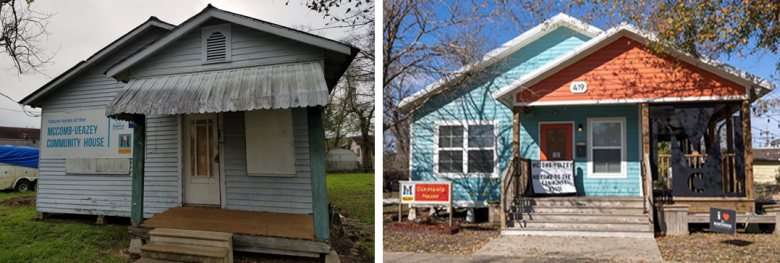
Lafayette Habitat and the McComb-Veazey Neighborhood Coterie transformed an adjudicated property into a neighborhood gathering space called the Community House. Left, before construction. Right, after construction.
“The neighborhood has changed a lot,” says Trincella Bonnet, a resident. “There’s more pride for the community. I’m very excited about the future of McComb-Veazey.”
Partnering with residents
For decades, Lafayette Habitat has partnered with families to build affordable places to call home. In 2011, the affiliate began partnering closely with the McComb-Veazey Neighborhood Coterie, a resident-led planning body that formed in 2006 to create neighborhood revitalization plans.
“Residents in the coterie had been encouraged to dream big,” says Melinda Taylor, Lafayette Habitat’s executive director. “But some of them had become discouraged because there weren’t resources to implement the neighborhood plan. We were able to come in as a partner, listen to their needs and ask, ‘How can we be a part of getting you to where you want to be?’”
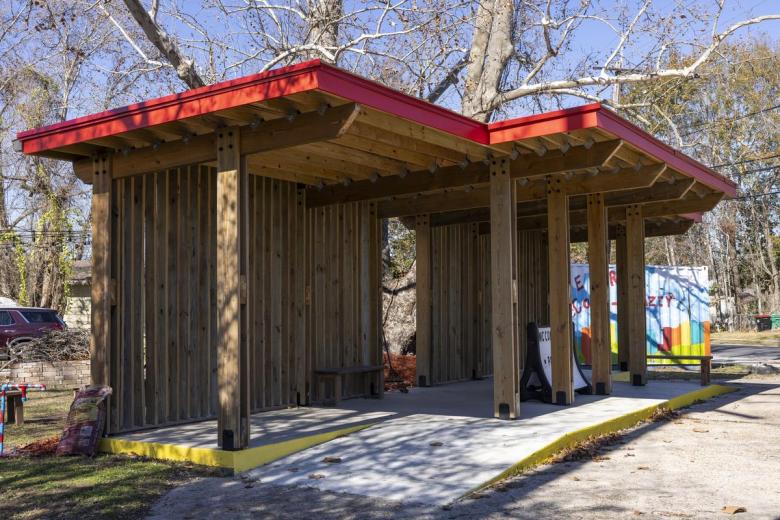
Lafayette Habitat and the McComb-Veazey Neighborhood Coterie built an outdoor pavilion for community events.
In 2018, when Lafayette Habitat began participating in a five-year project to evaluate Habitat’s approaches to neighborhood revitalization, the affiliate was able to connect the coterie to resources that would help them implement their neighborhood plan.
Identifying needs and investing in projects
Residents identified building a central community gathering space as a top priority. Lafayette Habitat worked with the coterie to design and renovate a formerly adjudicated property owned by the Lafayette Consolidated Government. The affiliate manages and maintains the Community House, a one-room space that hosts coterie meetings, local events, trainings and more.
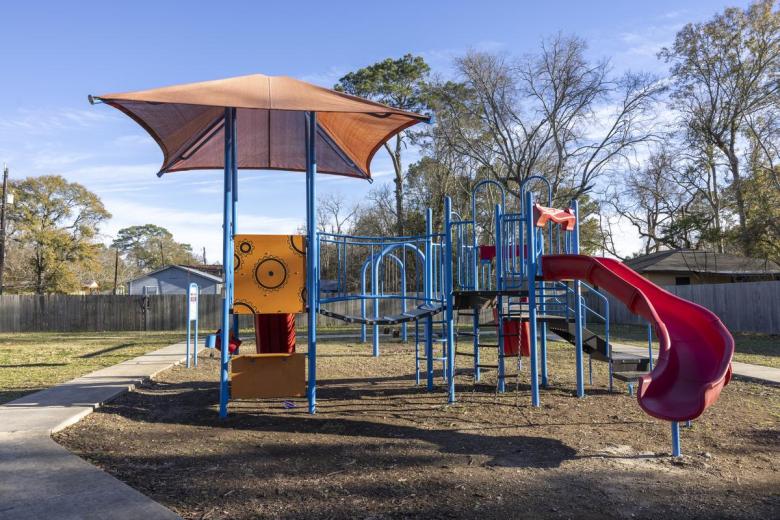
Lafayette Habitat and the coterie advocated for the city government to build a pocket park in McComb-Veazey.
Additionally, Lafayette Habitat and the resident-led coterie — together with local partners and the city government — have:
- Built more than 40 affordable homes and acquired dozens of additional blighted properties for redevelopment.
- Converted a former tire shop and filling station adjacent to the Community House into an open-air pavilion for events.
- Launched a youth entrepreneurship academy where 11- to 17-year-olds learn to develop, refine and pitch their business ideas.
- Advocated successfully for the development of a pocket park, giving neighborhood kids a safe place to play.
“This community has been asked what they wanted for years, and nothing materialized,” says Tina Shelvin Bingham, a coterie leader and Lafayette Habitat’s community development director. “Habitat and other funders were able to bring resources into the community and help us sell the vision of what could happen.”
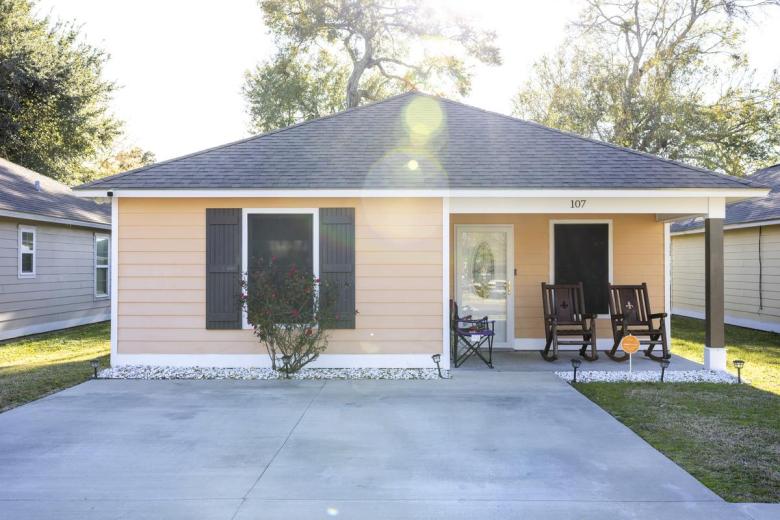
Lafayette Habitat has partnered with families to build more than 40 affordable homes in McComb-Veazey.
Residents are energized by the physical changes in the neighborhood and are participating more in community gatherings. A survey found that 76% of McComb-Veazey residents engaged in at least one community meeting or event over the last five years.
Shaping the future of McComb-Veazey
Residents like Trincella are playing a critical role in shaping the future of their neighborhood. They have big dreams for their community and are using their collective voice to continue to advocate for the changes they want to see.
“Since I’ve been a part of the coterie, they have helped strengthen my voice,” says Trincella. “At one time, I was scared to speak. But now I feel more confident in speaking up for the rights of the community and for what their needs are. They know my voice.”
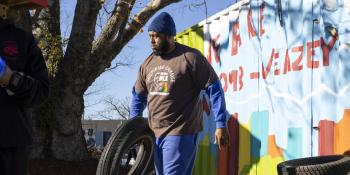
Habitat partners with residents to revitalize an under-resourced Louisiana neighborhood
